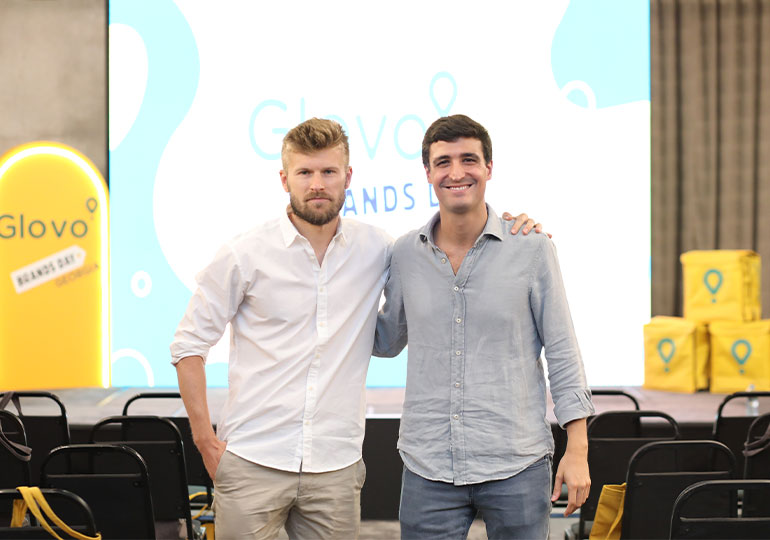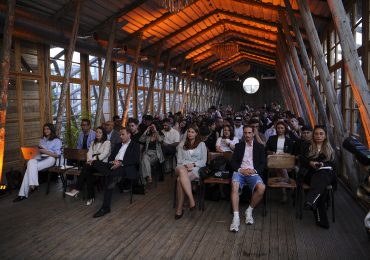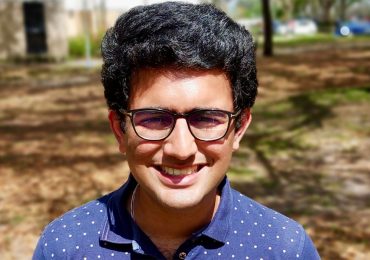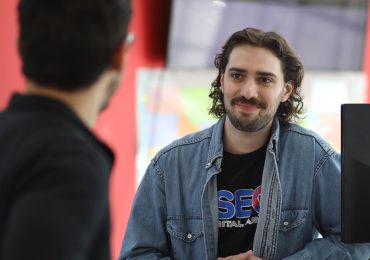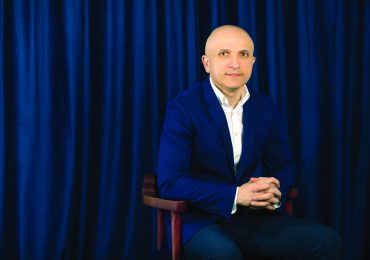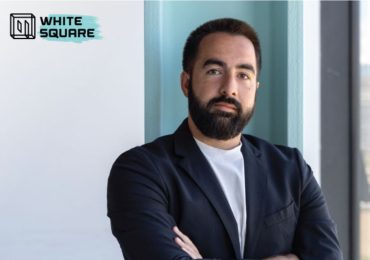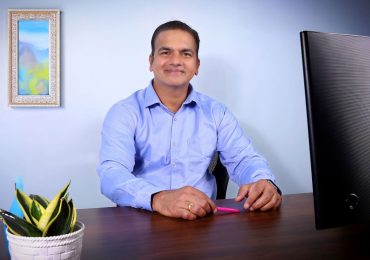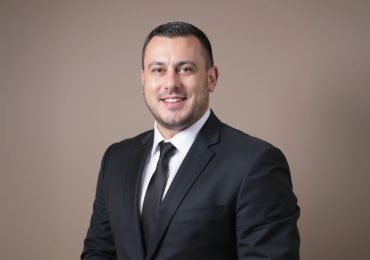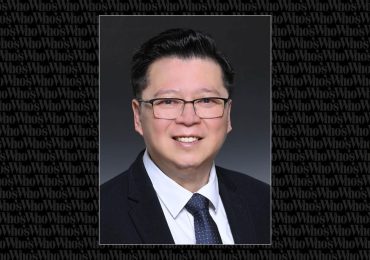“We want Glovo to become a Georgian brand. We don’t want to be a company from Spain, that landed here with a standard playbook”, told Rodrigo Alier, one of Glovo’s international executives. He could not have been more right. It’s been more than three years since Glovo’s Georgian launch and honestly speaking, it does feel like home. Yet, it is something more, too. Glovo’s landmark yellow boxes bring joy and excitement, while the couriers pacing around Tbilisi and nine other Georgian cities represent progress and opportunity.
Glovo is a multi-category delivery service with a simple yet kicky vision: to give everyone easy access to anything in their city. Today, Glovo is present in more than fourteen hundred cities around the twenty-five countries in Southern Europe and EEMEA. All this is accomplished by c. 3500 people that Glovo proudly employs. Last year, the German delivery giant Delivery Hero acquired the majority stake at Glovo – the transaction valued at €2.3 billion, making it one of the most valuable Spanish companies.
Yet, Glovo is not merely a delivery company. Not anymore, at least. Glovo aspires to be the technological enabler that partners up not only with existing brands but helps small- and medium-sized enterprises on their digital journey. This is evident in Glovo’s expansion strategy. The Spanish giant is present not only in capitals and major cities but in small towns, which, sometimes, are of no interest to established brands.
I sat down to talk with Glovo’s Executive Director of Partners and Brands, Rodrigo Alier, and Regional General Manager in Europe and Central Asia, Dima Rasnovsky about the operational peculiarities and the Georgian future of the Spanish brand. We discussed Glovo’s expansion strategy and touched upon the hardships and opportunities the delivery giant is facing. What follows is the transcript of our conversation.
Rodrigo, and Dima, let’s talk about the first Glovo Brands Day held in Georgia. What messages did you want to convey to Glovo’s Georgian partners?
Rodrigo Alier: Glovo has been operating in Georgia for more than three years, and we thought it was perfect timing to bring all our key partners and key brands that are part of the Glovo ecosystem. We want to be more transparent about what has been happening over the last years; to answer questions like “What is our ambition?” and “What is our vision?”. Yet, we also want to create a lot of momentum around Glovo, which is becoming a massive ecosystem. We want our partners and brands to be super engaged – we want them to see Glovo as a platform they can invest in to keep growing. There were three sides to our marketplace, but now we are transitioning to a four-sided one. Thus, our partners and brands are in a great position to start capitalizing on all the value offered by the marketplace. We have reached a dimension that allows us to make that a reality. Now, we are focusing on the development of technology, which was not top of mind a few years ago.
Dima Rasnovsky: The Glovo Brands Day is a great possibility to gather. Even though Glovo is a big player, the best opportunities are still ahead, and we need to find a way to create them together. We feel that building transparency and partnership with brands is the best way to make it happen. There are no books about food delivery – only teamwork can create it. That is why we are here – to meet, work, brainstorm, and ultimately, agree on something.
Rodrigo Alier: You know, it’s not only about food delivery. It’s about the quick commerce experience that we are creating. Georgia has been pioneering that with our ultra-fast proposition partnership with top retailers and other brands. Many brands ask us: “Rodrigo, Dima, how can we grow further in Glovo? What can we do?”. There are a lot of question marks, of course. There’s no written playbook, as Dima said. We are here to provide answers. We are investing in our product and technology to answer questions and allow these brands to capitalize on the opportunity.
What concrete steps are you taking to bring more brands and partners to Glovo?
Rodrigo Alier: It’s all about democratizing on-demand food delivery. Today, more than 1500 Georgian restaurants are available online, yet, the main question is: “How can we bring more of them to Glovo?”. Many Georgian merchants have never experienced e-commerce nor made any sales online. Thus, we need to raise awareness, but we also need to empower our merchants. We must offer them solutions. Some might want to sell online, while others seek the right software to develop their operations or to build a website. We must help them while keeping in mind the demand. Some merchants will be looking to boost online sales, while others to make their operations more effective. We must help our partners on the digitalization journey that they are on.
What you are referring to reminds me of the Super App concept. Here in Georgia, the e-commerce industry is heading towards consolidation around a few top financial institutions working on the Super App strategy. Do you see Glovo as a competitor to these institutions?
Dima Rasnovsky: Firstly, I don’t think we have competition; we have competition. The Georgian market is underdeveloped, so I am super happy to have these players because they help us change the market and the behaviors. The market share battle will come much later – the penetration is not there yet. Secondly, there are many synergies between us. Today, the marketplace game revolves around the ecosystem, so both banks are doing exactly that. It’s super cool, too, for such a small country. You have two strong players who, through the competition between themselves, are driving the innovation further. At the same time, there is no Amazon. If you go to Ukraine, you have Rozetka; if you go to Europe, there is Amazon. There is a big player everywhere, but here and now, there is no big player. What we must do is fill the niche.
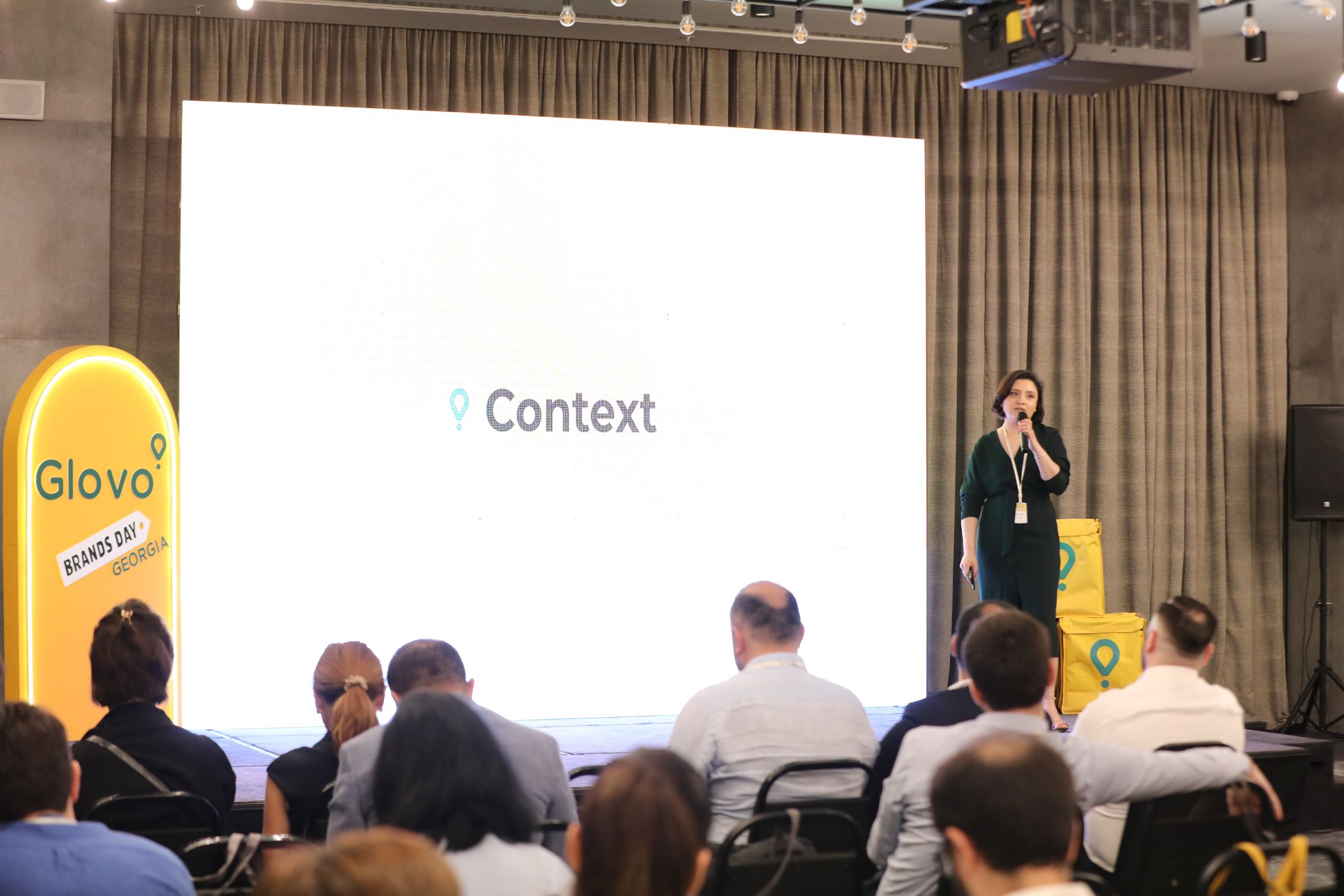
Rodrigo Alier: We see it as a partnership. With all these local Super Apps built with Glovo in mind, could be a great marriage because, in the end, we are not only operational experts but also tech experts. The other ones are complementary, as they come from the fintech world. What if we also develop fintech solutions? We see a way to merge initiatives to become the operational capability for some of those financial institutions and even explore potential fintech synergies and opportunities we can build together. We want to keep exploring and looking after the possibilities.
It has been three years since Glovo’s launch in Georgia. Looking back, what were the main problems you solved, and what are you currently working on?
Dima Rasnovsky: The main problem we did not know how to solve is to drastically increase the Georgian population. (Laughing.) We are talking a lot about it, but we don’t have a solution.
In general, the last three years were great. The market is super open to innovation. That is why we are launching many things here. If I could go back, I would change certain things and accelerate them, especially in Q-commerce, but these were the mistakes we learned from. We are happy. Georgia is a very successful case. We are thinking now about keeping the same pace for the next ten years rather than the obstacles we might face.
Rodrigo Alier: We want to localize our market investments. We want Glovo to become a Georgian brand. We don’t want to be a company from Southern Europe, from Spain, that landed here with a standard playbook. We want to localize everything. Our brand resonated quite well with the Georgian population from the beginning. Later, our success and the sustainability of our business model, which we have proven from the very beginning, brought innovation. Georgia was one of the first markets where we launched our subscription program – Glovo Prime, which has proven very successful. We started to invest in the Q-commerce value proposition early on by signing top retailers and launching Glovo Express. Let’s not forget about the food innovation business, too. We have been launching new brands and partnering with the top brands to create Cook Rooms. The Georgian experience allowed us to push our innovation harder from the very beginning. Today, Georgia has one of the highest penetration of orders per capita in all the countries where Glovo is present. Yet, we believe that Georgia can keep growing, and we want to be part of that growth.
Let us focus on localization for a bit. Glovo is the brand present not only in capitals or other large cities but also in relatively small towns – in this context, Spain would be the perfect example. What is your expansion strategy for Georgia? Do you consider expanding into the regions where big brands are not present?
Dima Rasnovsky: We are already doing that. In several cities where we operate, big brands are not present. It’s a matter of how to balance the marketplace. To launch in the city, you need to have three things: restaurants or shops, users, and couriers. Whenever we feel confident about this balance, we launch. Are we going to launch a lot in Georgia? No. Are we going to launch in some cities? Of course. A year ago, I was in Borjomi. I want to launch there; I think it’s a nice place. There are restaurants, there are people. We are on the go. We will launch it at some point. Yet, there are other places, and the team is constantly evaluating them, but we need to effectively understand where the return on the one lari invested will be the highest – while expanding or developing in Tbilisi. There are still some places in Tbilisi where we don’t deliver. We need to expand.
Rodrigo Alier: We certainly believe in the hyperlocal strategy. We have dedicated regional city teams in most cases, as these cities require extra focus. We cannot follow the same standard playbook as we have done in the capital cities. In Georgia, we operate in ten cities, including not only Tbilisi and Batumi but also Kutaisi, Rustavi, and all the other relevant cities. To crack it, we need to build network effects in these cities and localize our marketing effort to understand what is relevant and what is not.
At some point, we would proactively encourage some of our most successful partners to expand to the smaller cities to keep growing their business. Honestly, I believe these towns would not achieve growth as crazy as you might see in the main cities, but eventually, it will pay back.
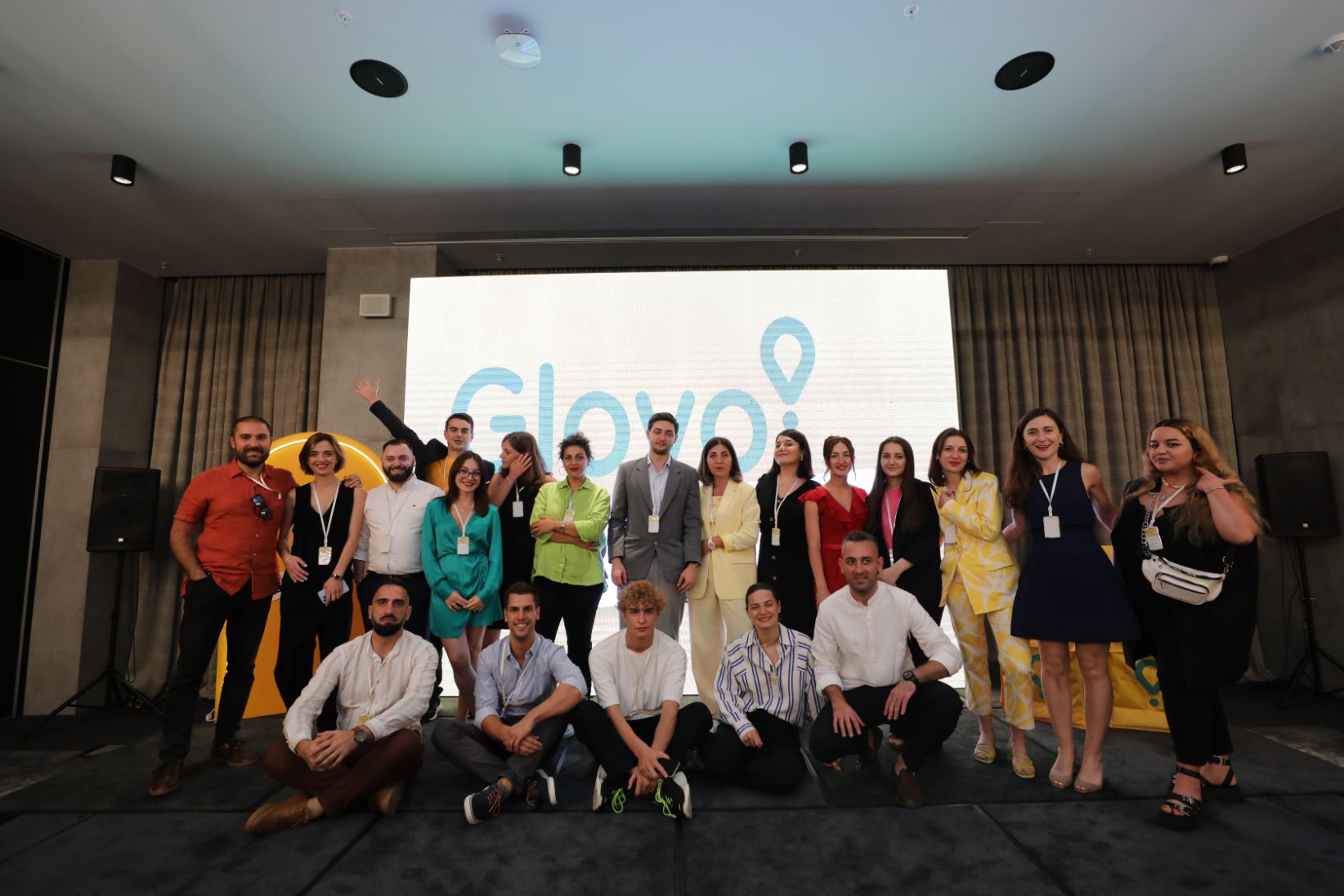
Dima Rasnovsky: Our partners and brands are using our data to expand. We are open about it. We tell them whether it makes sense to go there or not, based on this and that data.
Rodrigo Alier: We want to be an enabler, too. Imagine a shawarma gap in a particular city that no one is covering. You have an opportunity there to launch a shawarma brand and conquer the market. Same with groceries. If you are AgroHub, for example, and do not have coverage in the specific area, we would ask you, have you ever thought about expanding here? In general, we want to act as consultants for companies, focusing on growth and expansion.
Let’s talk about the growth. With time and the country’s technological development, the penetration rate would increase naturally – that’s obvious. In the meantime, what could Glovo do about it?
Rodrigo Alier: It is the combination of two things: brand awareness and content. Firstly, we must keep on building brand awareness: Glovo must be top of mind. Secondly, we need to bring more merchants, more restaurants, and more stores online. As you know, our vision is to give everyone easy access to anything in their city.
Yet, the current economic environment will play an important role, too. It’s all about affordability. We must make on-demand food delivery super affordable; it must become part of daily life. If you are spending €10-15 per order, you might not afford to do it daily. Thus, we are looking for a formula that will bring that affordability through specific partnerships, relevant promotions, and content.
Dima Rasnovsky: I would add one thing: if we want to change human behavior and habits, we must create a great experience. For this, we must improve our operations and delivery times. People love having a smooth experience.
Let’s turn around and talk about the corporate aspect of your business. In our age, businesses are increasingly more cautious about their environmental footprint. What is Glovo’s stand on Corporate Social Responsibility? What CSR projects have you carried out in Georgia?
Dima Rasnovsky: Corporate Social Responsibility is a big focus point for our founders. We want not only to earn money but to make our world better. All our employees are the residents of the cities they work in, so it’s important not only to do business but to do something nice for them. So far, the biggest CSR project in Georgia is the Glovo Pledge – a project for couriers ensuring a certain level of earnings and development. We understand that for many, working as a courier is the first step in their careers. Thus, we want to ensure a fair level of earnings because people need to be able to make a living out of it.
We have several other initiatives relevant to Georgia, including the Women in Tech, or compensation for our CO2 emissions. So, all CO2 emissions we produce in each country are compensated by the Glovo HQ to several non-governmental organizations working on ecology. Additionally, we have programs supporting small- and medium-sized businesses and many suppliers operating free of commissions because we are trying to support local production. Yet, we are on the way to scaling it; we want to make our Corporate Social Responsibility commitment stand out.
Rodrigo Alier: From a global standpoint, I’d like to highlight the Small Business Initiative. We believe that we must play a crucial role in digitalizing the economy. We must help merchants go online. Some of them will require hard work; others will require credit. We want them to understand that going digital is not that tough. We will help them with the financial toughness of certain things – it’s a small investment for a higher return in the future, not only for them but for all the parties involved.
At Glovo, we are also working on increasing women participation in leadership. We are investing a lot in ways to bring more women and female leaders into tech. We have an academy of software engineers for female leaders.
Dima Rasnovsky: In Georgia, for instance, women make up half of the management team. I’m proud of this, as I come from a former USSR country. In most companies in Ukraine, Georgia, Kazakhstan, and Armenia, the leadership is male. I think we are already leading by example in these markets.
Just recently, Glovo announced new General Managers for Georgia and Armenia. Who are they? What background do they have? What will they bring to the table?
Dima Rasnovsky: These two guys are from Ukraine. For Georgia, it’s Artem Kolosiuk, and for Armenia, it’s Oleg Goroshchak. Both have a successful track record in different countries. Artem had been working in Ukraine, where he was responsible for all non-Kyiv business. Before that, he held leadership roles in companies like Jacobs and Procter & Gamble. Oleg launched for us Kyrgyzstan and Belarus and is now going for Armenia. For me, the short- to mid-term target is for them to bring focus and some standards from the larger markets and then to work on the transition to the local General Manager. Our strategy is to have local GMs, but we’ve been struggling to hire and decided to go this way. These guys already made a lot for us. Now, our business is getting very complicated. On top of that, we have a specific corporate culture, and we must have somebody who can do both things.
What do you mean by business getting complicated?
Dima Rasnovsky: With the launch of Q-commerce, our business became operationally complicated. Here could be a shortage of pickers, while there picking is impossible, or the product is unavailable. There are a lot of tools to use and many processes to establish, for which we can hardly find someone on the market. It is crucial to understand that when you operate in a former USSR country, you cannot hire from Amazon. In Spain, for instance, you can hire from Amazon or a competitor company, such as Just Eat or Uber. There are a lot of people with relevant experience. Here, we don’t have that luxury.
Rodrigo Alier: We strongly believe in building super-strong teams and strong talent. In Georgia, there are many startups, and the investment in the tech ecosystem is growing, so the competition is super high. Finding the right profile for the right place tends to be tough.
Should we expect any major operational or strategic changes from the new General Managers?
Dima Rasnovsky: No. We have our ambition and focus. We understand that we are just in the very beginning, so we will not change our strategy. We didn’t have time to execute it yet. Once we execute the existing strategy, we will probably change our minds and renew our goals. We are in the middle of the game.
Rodrigo Alier: Now, as we have the financial clarity and budgets for the years to come, we are confident that we will execute our strategy very well. Over the last three years, there have been a lot of ups and downs here in Georgia. There were a lot of moments when we needed to adjust to company realities. We are in a solid place to continue doubling down on our existing strategy for the years to come.


